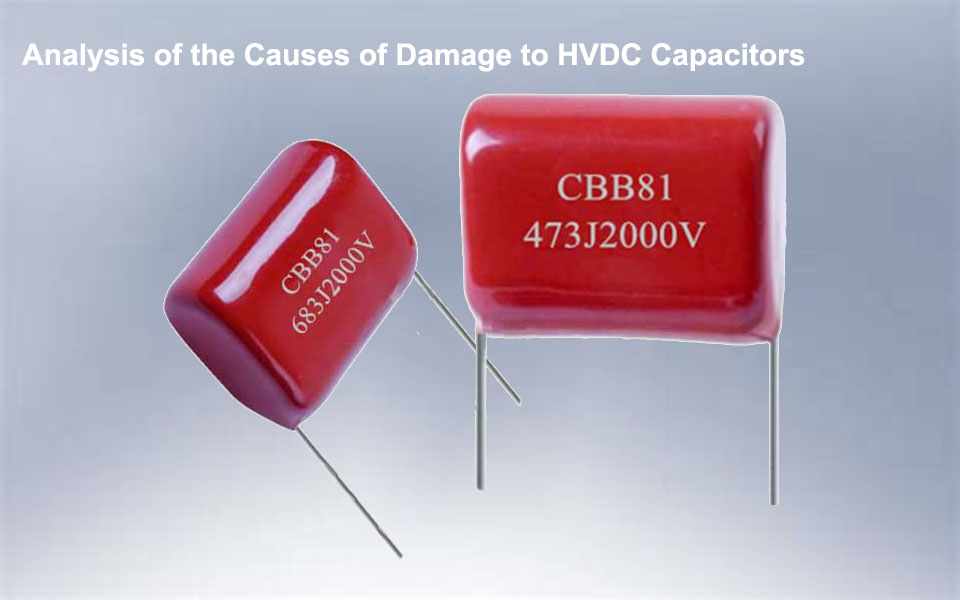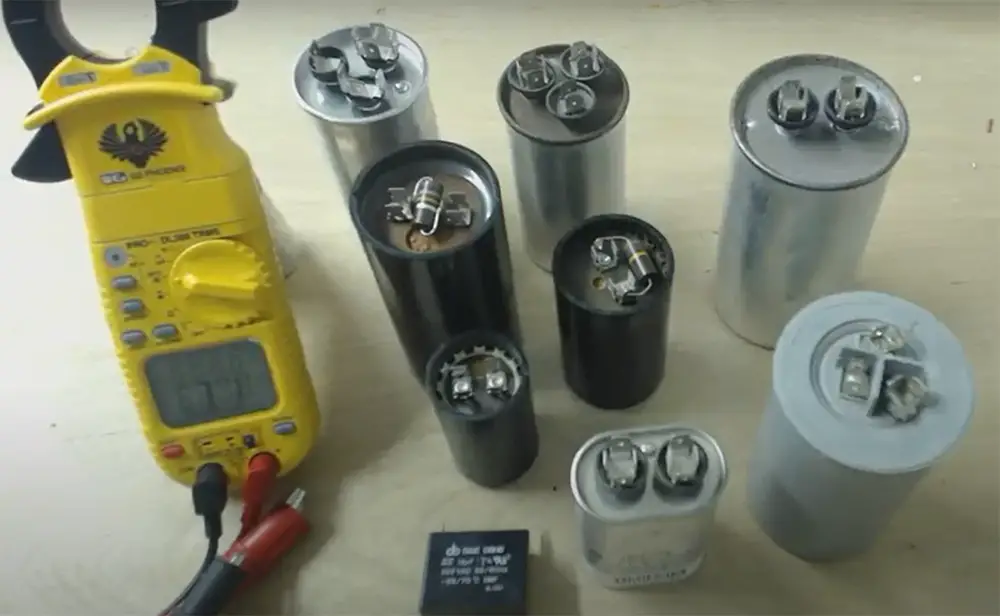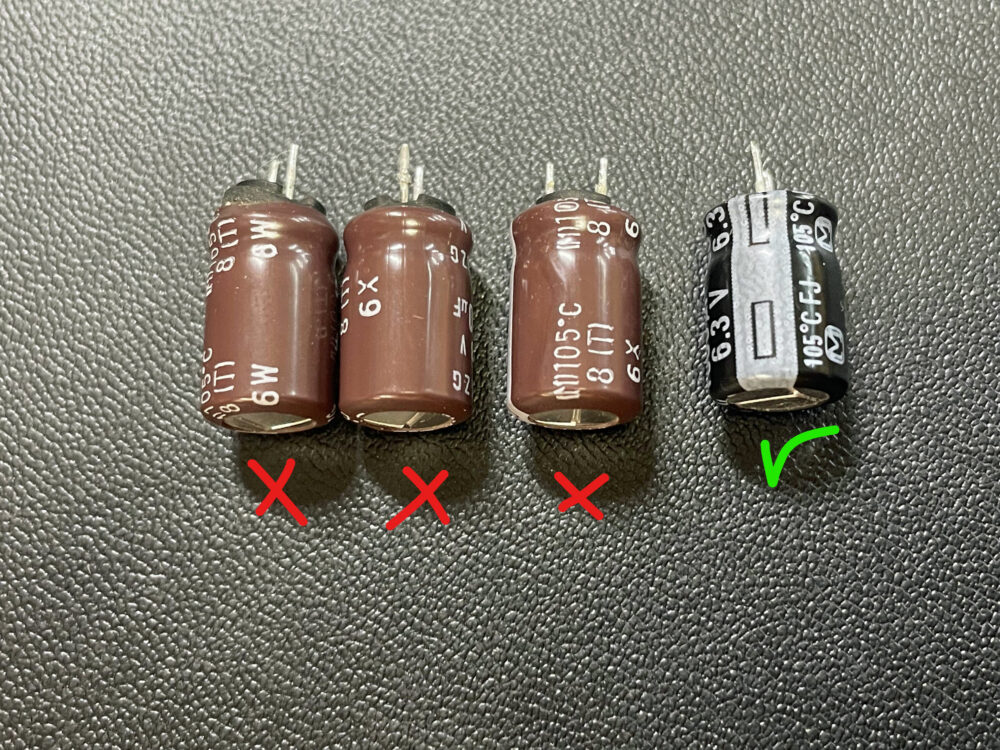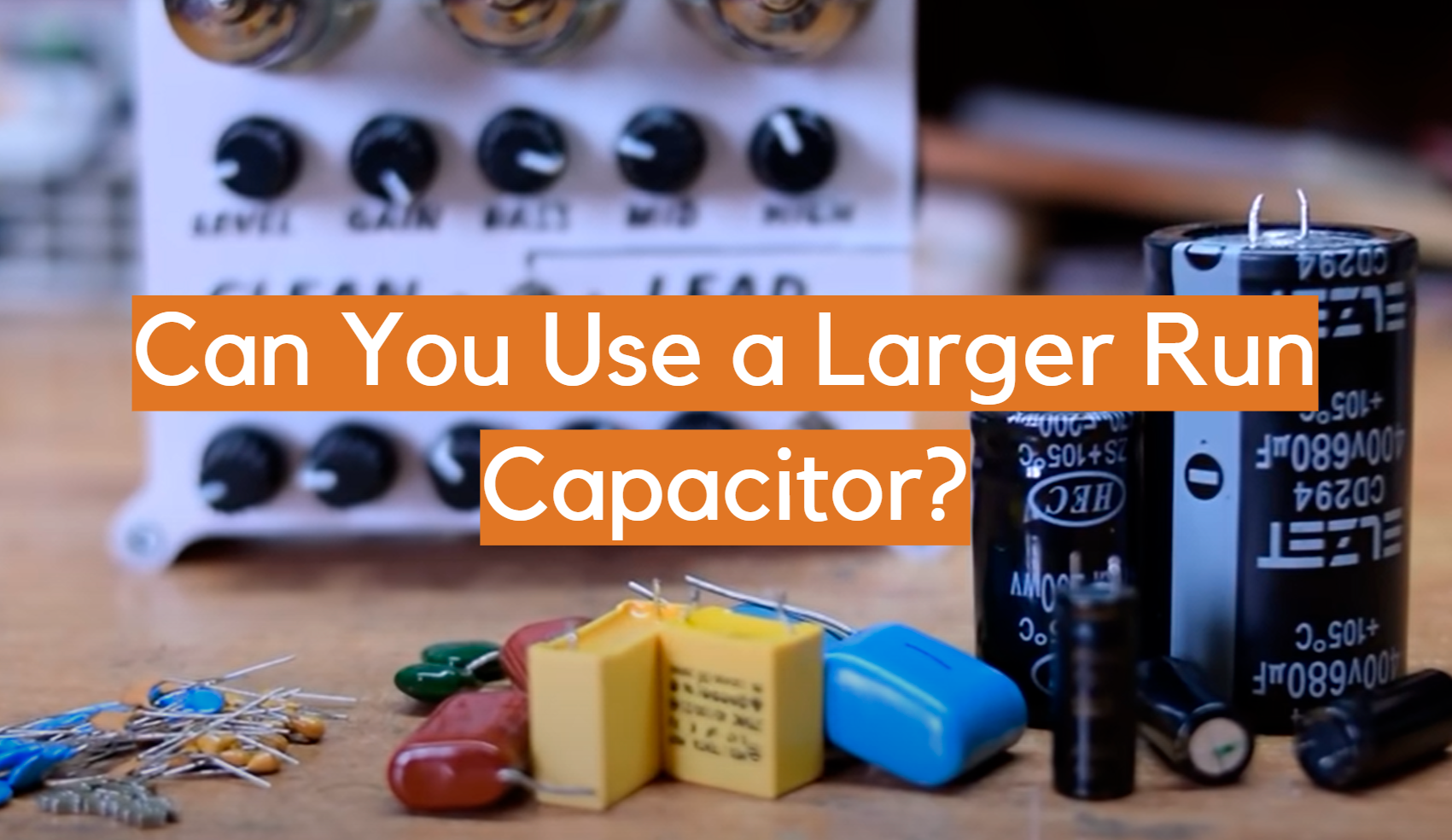Brilliant Info About Will A Larger Capacitor Damage Motor

Can a Bigger Capacitor Fry Your Motor? Let's Investigate!
1. Understanding Capacitors and Motors
So, you're wondering if you can just slap any old capacitor onto your motor and call it a day? Well, hold your horses (or should I say, your horsepower?). It's a bit more nuanced than that. Think of a capacitor like a tiny energy reservoir. It stores electrical energy and releases it when needed, giving your motor that extra "oomph" to get started or keep running smoothly. Motors, on the other hand, are the tireless workhorses that convert electrical energy into mechanical energy. They need the right kind of electrical "fuel" to operate efficiently and avoid, well, going up in smoke.
The correct capacitor is crucial for starting many AC motors, particularly single-phase induction motors. It provides the necessary phase shift in the current to create a rotating magnetic field, which gets the rotor spinning. Without the right capacitor, the motor might hum, struggle to start, or even overheat. Choosing the wrong one is akin to giving your car engine the wrong type of fuel — it's just not going to run correctly, and you might cause some serious damage in the process.
Think of it like this: if you have a car that needs 87 octane fuel, you wouldn't put 93 octane in the car just to see what happens. Same with motors, you cannot give it just any type of capacitor, or any size.
Capacitors are measured in microfarads (F), and each motor is designed to operate with a specific capacitance range. This range is usually indicated on the motor's nameplate. Sticking to this range is essential for optimal performance and longevity.
So, Will a Larger Capacitor Damage a Motor? The Short Answer...
2. The Risks of Oversizing
Alright, let's get down to brass tacks. Will a larger capacitor damage a motor? The short answer is: potentially, yes. While it might seem like "more is better," that's not the case when it comes to capacitors. Using a capacitor with a significantly higher capacitance than recommended can lead to a few nasty problems.
First off, it can cause excessive current flow in the motor's windings, particularly during starting. This extra current generates heat, which is the enemy of all things electrical. Over time, this heat can degrade the insulation on the windings, leading to short circuits and ultimately, motor failure. Imagine your motor as a weightlifter. The capacitor is like a spotter helping them lift. A bigger capacitor is like having ten really enthusiastic spotters who are pushing way too hard. It might seem helpful at first, but it's actually putting undue stress on the lifter (the motor).
Secondly, a larger capacitor can also cause the motor to run hotter than it should, even under normal load conditions. This is because the excessive capacitance can distort the motor's voltage and current waveforms, leading to inefficient operation and increased heat generation. Think of it like driving your car with the parking brake slightly engaged — you're going to burn more fuel and the engine will run hotter.
Furthermore, oversized capacitors can prematurely wear out other components in the motor circuit, such as the start switch and the motor's bearings. So, while the capacitor itself might not fail immediately, it can create a domino effect that leads to a cascade of problems.

What Happens If You Use a Smaller Capacitor?
3. The Opposite Problem
Now, let's flip the script. What happens if you go the other way and use a smaller capacitor? Well, that's not ideal either. A smaller capacitor simply won't provide enough "oomph" to get the motor started reliably. The motor might hum loudly, vibrate, and struggle to reach its operating speed. In some cases, it might not start at all.
A motor with a too small capacitor will struggle to start, or won't start at all. You will hear humming and vibrating, but it will not start properly. If it does finally start, it will not operate efficiently and can overheat as well.
A capacitor's microfarad rating is precisely matched to the winding of the motor. Deviating from this rating in either direction will most likely damage the motor, even if it does run. The best practice is to use the right size capacitor.
It's like trying to start a car with a weak battery — you might hear the starter motor cranking slowly, but the engine just won't catch. Over time, repeatedly trying to start a motor with an undersized capacitor can also damage the motor's windings and other components.

Capacitor Problems Solved How To Identify Best Capacitors // Assembly
Finding the Goldilocks Zone
4. Matching the Motor's Needs
So, the key is to find the "Goldilocks zone" — not too big, not too small, but just right. The best way to choose the correct capacitor for your motor is to consult the motor's nameplate. This handy little plate contains all sorts of useful information, including the recommended capacitance range.
If the nameplate is missing or illegible, you can usually find the information in the motor's documentation or by contacting the manufacturer. When replacing a capacitor, it's always a good idea to match the original capacitor's capacitance rating as closely as possible. You can usually find this rating printed directly on the capacitor itself.
It's also important to consider the voltage rating of the capacitor. Make sure the replacement capacitor has a voltage rating that is equal to or greater than the original capacitor's rating. Using a capacitor with a lower voltage rating can be dangerous, as it could overheat and explode.
When in doubt, it's always best to err on the side of caution and consult with a qualified electrician or motor repair technician. They can help you identify the correct capacitor for your motor and ensure that it is installed properly.

Can You Use A Larger Run Capacitor? ElectronicsHacks
Capacitor Maintenance
5. Ensuring Longevity
Even if you choose the right capacitor, it's important to perform regular maintenance to ensure its longevity. Capacitors, like all electrical components, can degrade over time, especially under harsh operating conditions.
One of the most common signs of a failing capacitor is bulging or cracking of the capacitor's case. If you notice any of these signs, it's time to replace the capacitor. You should also check the capacitor's terminals for corrosion or damage. Clean any corroded terminals with a wire brush and apply a dielectric grease to prevent further corrosion.
Regularly inspect the capacitor for any signs of damage, such as bulging, cracking, or leakage. Use a multimeter to test the capacitor's capacitance and ensure it is within the specified range. If the capacitance is significantly lower than the rated value, the capacitor needs replacement.
By performing regular maintenance and replacing worn-out capacitors promptly, you can extend the life of your motor and prevent costly repairs down the road. And remember, a happy motor is a productive motor!

Budget Capacitor Can Cause Damage To Your Computer System
Frequently Asked Questions (FAQs)
6. Common Queries About Motor Capacitors
Q: Can I use a capacitor with a slightly higher voltage rating?
A: Absolutely! In fact, it's generally recommended to use a capacitor with a voltage rating that is slightly higher than the motor's operating voltage. This provides a safety margin and helps to prevent capacitor failure due to voltage spikes or surges.
Q: What happens if I install the capacitor backwards?
A: Most motor capacitors are non-polarized, meaning they don't have a positive or negative terminal. You can install them either way. However, some capacitors (like electrolytic capacitors) are polarized. Installing a polarized capacitor backwards can cause it to overheat and explode, so it's important to pay attention to the polarity markings.
Q: How often should I replace the capacitor in my motor?
A: There's no one-size-fits-all answer to this question. The lifespan of a capacitor depends on various factors, such as operating conditions, temperature, and the quality of the capacitor itself. As a general rule of thumb, it's a good idea to inspect your motor's capacitor every few years and replace it if you notice any signs of wear or damage. Also, if your motor is struggling to start or running erratically, the capacitor is a likely culprit.
